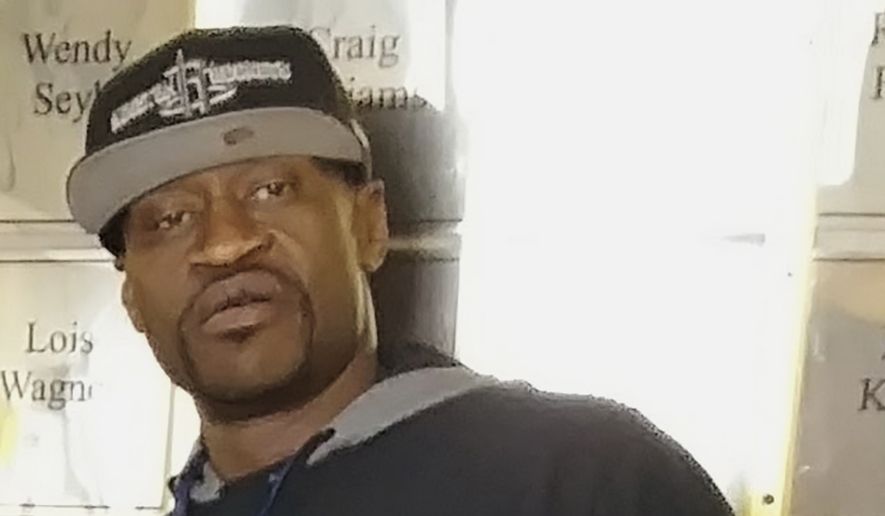Independent autopsy results released Monday by the family of George Floyd found that he died of asphyxiation as one Minneapolis police officer pressed his knee into his neck and two others pushed on his back.
At a press conference called by Benjamin Crump, the family’s attorney, high-profile pathologist Dr. Michael Baden said the compression on the 46-year-old Floyd’s back during the arrest in Minneapolis was the cause of death.
“The cause of death in my opinion is asphyxia due to compression of the neck which, as Mr. Crump indicated, can interfere with blood flow and oxygen going to the brain, and compression of the back, which interferes with breathing,” said Dr. Baden.
The independent findings contradicted the preliminary autopsy results of the Hennepin County Medical Examiner, which found that Mr. Floyd had “underlying health conditions including coronary artery disease and hypertensive heart disease.”
“The combined effects of Mr. Floyd being restrained by police, his underlying health conditions and any potential intoxicants in his system likely contributed to his death,” said the complaint filed Friday by the Hennepin County Attorney.
Mr. Floyd died on Memorial Day during an arrest for passing a phony $20 bill after former Minneapolis Officer Derek Chauvin, who is white, kneeled on the handcuffed black man’s neck for nearly nine minutes.
Mr. Crump said that “for George Floyd, the ambulance was his hearse,” saying that he was already dead when he was transported to the local hospital after the confrontation with police.
“Beyond question, he would be alive today if not for the pressure applied to his neck by fired Officer Derek Chauvin and the strain on his body from the two additional officers [kneeling] in his back,” said Mr. Crump.
Independent medical examiners determined #GeorgeFloyd’s death was due to asphyxia from sustained forceful pressure. Full statement: pic.twitter.com/cIbWu8ssWX
— Benjamin Crump, Esq. (@AttorneyCrump) June 1, 2020
Dr. Baden challenged the finding of preexisting medical conditions, saying that his autopsy showed that “Mr. Floyd had no underlying medical problem that caused or contributed to his death.”
“He was in good health,” said Dr. Baden, a former New York medical examiner, who also conducted independent autopsies on Michael Brown and Eric Garner, both unarmed black men who died at the hands of police.
Dr. Baden also said the “compressive pressure on the neck and back” were not picked up during the initial autopsy because by then the pressure had been released.
“When he said, I can’t breathe — unfortunately, many police are under the impression that if you can talk, that means you’re breathing. That is not true,” he said.
Attorney Antonio Romanucci said that the actions of the police officers were the “proximate cause of George Floyd’s death.”
“Not only was the knee on George’s neck a cause of his death, but so was the weight of the other two police officers on his back, who not only prevented blood flow to his brain but air flow to his lungs,” said attorney Antonio Romanucci at a press conference. “That makes all of those officers on scene criminally liable and without a doubt civilly responsible.”
Dr. Allecia Wilson, professor of pathology at the University of Michigan, said that more information would be needed for the final autopsy report.
“We acknowledge that additional medical information, including toxicology and further investigation, are necessary for a final report; however, the evidence is consistent with mechanical asphyxia as the cause of death and homicide as the manner of death,” said Dr. Wilson.
Mr. Chauvin has been charged with third-degree murder and manslaughter in the death of Mr. Floyd, while prosecutors have said they may also file charges against the other three officers, who were also fired.
The Floyd family wants the charges to be revised to first-degree murder, said Mr. Crump.
Minnesota Attorney General Keith Ellison was named Sunday to lead the prosecution as part of a team that will include Hennepin County Attorney Mike Freeman, who had previously headed the case.
Dr. Baden said he was “very pro-police work in general,” but that there are “more than a few rotten apples that come up in deaths that occur during police restraints, and that needs to be further addressed.”
• Valerie Richardson can be reached at vrichardson@washingtontimes.com.




Please read our comment policy before commenting.